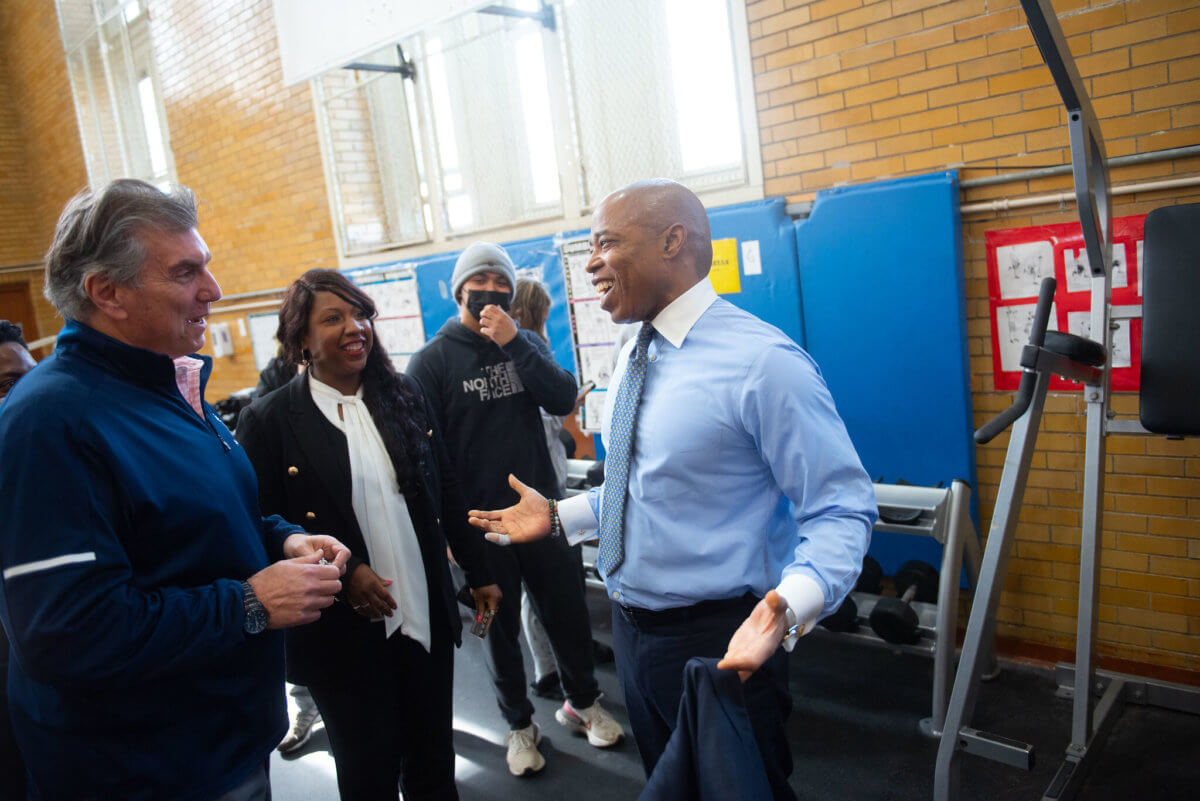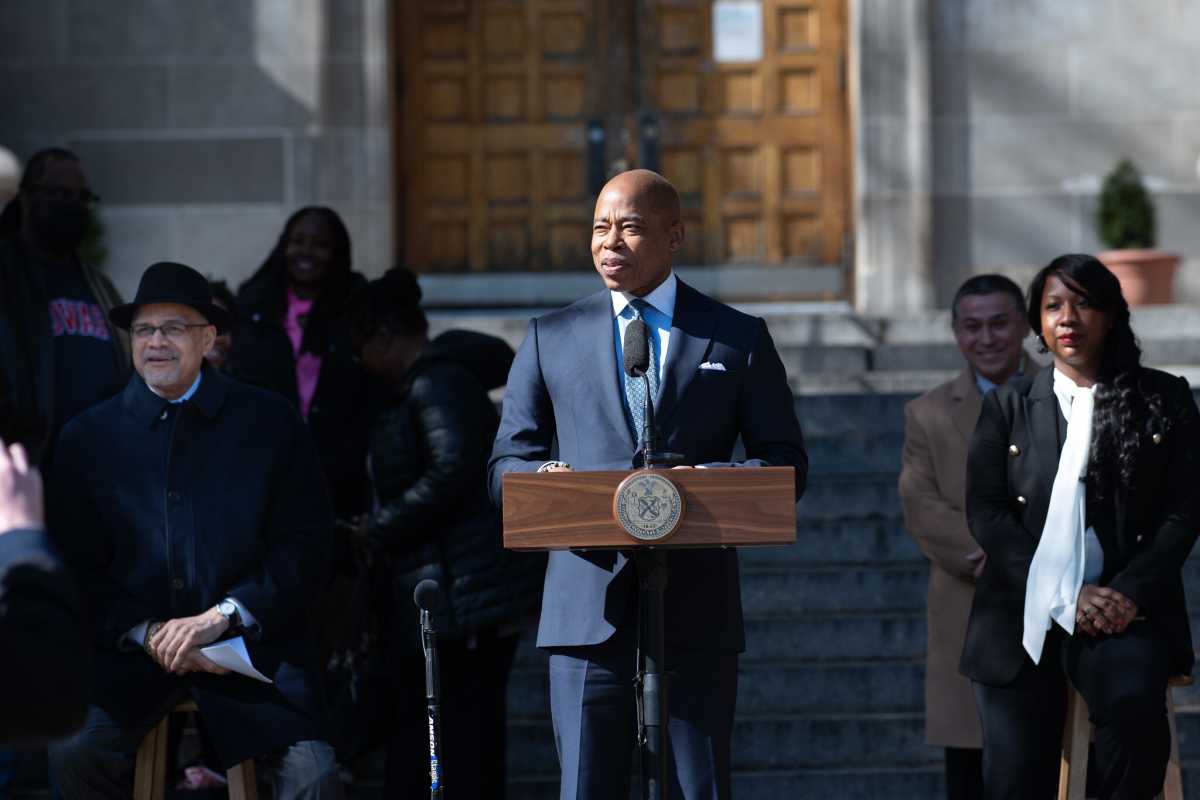Mayor Eric Adams and NYC Schools Chancellor David Banks joined parents and education advocates outside of Bayside High School on Tuesday, March 8, calling for a four-year extension of mayoral accountability in the state budget in order to ensure stability in the nation’s largest public school system.
Adams applauded Governor Kathy Hochul for sending a “loud and clear message” that mayoral accountability is needed for four years, and that it should be included in the budget.
“Every agency in our city, the mayor is responsible, you want to point to your mayor. So if the mayor’s responsible for every agency that handles adults’ problems, why shouldn’t the mayor be responsible for the agency that handles the problems of our children?” Adams said during a press conference outside of his alma mater, Bayside High School. “We should be in control of the public school system, so if we fail, vote us out.”
Adams reflected on his time at Bayside High School while noting the lack of services and funding at outer borough schools that have been impacted by the failure of not having mayoral accountability.

“Right here in Bayside because of mayoral accountability and funding, they’re receiving $1.6 million in additional funding for Bayside High School that has [been] denied them for so many years, and not having the right control, we are unable to fix those inequities in real time,” Adams said.
During the last two years amid the COVID-19 pandemic, according to Adams, children have suffered a severe learning loss in math, reading and developed mental health issues after transitioning from in-person learning to online instruction.
“When you think about the fact that the session ends in June that the same time mayoral accountability ends, how can we even think that our children should have to deal with the uncertainty of what the next school year is going to be, particularly after coming through two years of having COVID bring uncertainty in their lives, we can not do that again,” Adams said. “What COVID traumatized our students with, we should not traumatize them.”
Under mayoral accountability, Adams noted that they were able to bring certainty and clarity amid the pandemic when schools were reopened in January.
Now, more than ever, Banks said, the importance of mayoral accountability is clear, as a result of the pandemic.
“Our schools became meal hubs serving over 140 million meals to New Yorkers of all ages. We got hundreds of thousands of devices into the hands of our students. We kept our schools open and safe throughout the winter,” Banks said. “While other school boards around the country fought amongst themselves, we delivered.”
According to Banks, prior to the pandemic, mayoral accountability moved the graduation rates to nearly 80% after decades of languishing at around 50%.
“It increased because the public can finally hold someone accountable for results,” Banks said. “I lived in the old system where we did not have accountability, and no one was held accountable. So, we’re not blind to the problems that exist. We are two leaders that came up through these schools. We know these schools.”
Banks added, “We have to remove our schools and our children’s futures from the political horse trading that happens in Albany. We hear from our parents that this system betrayed them, but more politics will not solve the systemic problems that our system faces. It isn’t fair to our families, educators, or students, that time and political capital is spent every single year begging to do what is right for our kids.”
Vijah Ramjattan, president of CEC 28 and a parent of three children that attend public schools, praised Adams and Banks for their commitment and devotion to understanding parents’ concerns.
“We know that not only will we have leaders that will hear us but also encourage us to speak up and have our voices to be heard,” Ramjattan said. “We want to know that we will have people who we can go to — not in Albany, not where it’s not accessible, and those who don’t know who we are and what our concerns are. We want leaders who understand who we are as parents.”
In order to provide “real time transparency” to parents regarding their children’s progress in school, Adams is proposing the use of EduStat, a statistical tracking system for city schools similar to the NYPD’s Compstat program.
“The former chancellor started a version of EduStat and we need to get that in place, you should be able to gauge how your child is trending when they’re struggling, so you can get the resources immediately there,” Adams said.



































